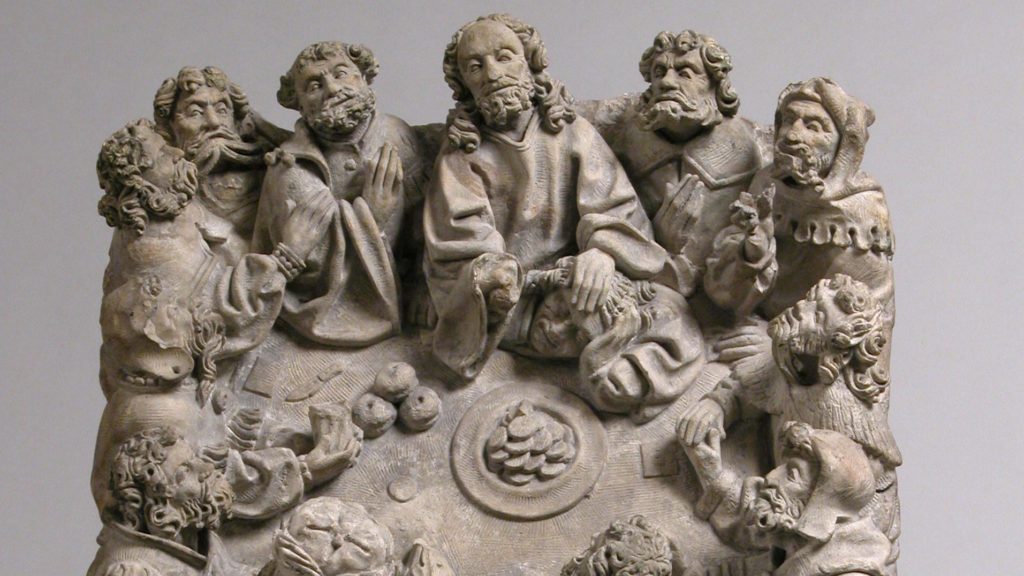Ex. 24:3-8 / Ps. 116:12-13, 15-18 / Heb. 9:11-15 / Mk. 14:12-16, 22-26
All of today’s readings are set in the context of the Passover. The First Reading recalls the old covenant celebrated at Sinai following the first Passover and the exodus.
In sprinkling the blood of the covenant on the Israelites, Moses was symbolizing God’s desire in this covenant to make them his family, his “blood” relations.
Quoting Moses’ words in today’s Gospel, Jesus elevates and transforms this covenant symbol to an extraordinary reality. In the new covenant made in the blood of Christ, we truly become one with his body and blood.
The first covenant made with Moses and Israel at Sinai was but a shadow of this new and greater covenant made by Christ with all humankind in that upper room (see Hebrews 10:1).
The Passover that Jesus celebrates with his 12 apostles “actualizes,” makes real, what could only be symbolized by Moses’ sacrifice at the altar with 12 pillars. What Jesus does today is establish his Church as the new Israel, and his Eucharist as the new worship of the living God.
In offering himself to God through the Spirit, Jesus delivered Israel from the transgressions of the first covenant. And, as we hear in today’s Epistle, by his blood he purified us and made us capable of true worship.
God does not want dead works or animal sacrifices. He wants our own flesh and blood, our own lives, consecrated to him, offered as a living sacrifice. This is the sacrifice of praise and thanksgiving that we sing of in today’s Psalm. This is the Eucharist.
What we do in memory of him is to pledge our lives to him, to renew our promise to live by the words of his covenant and to be his servants.
There is no other return we can offer to him for the eternal inheritance he has won for us. So let us approach the altar, calling upon his name in thanksgiving, taking up the cup of salvation.

